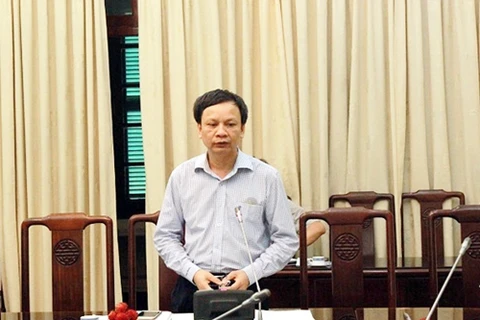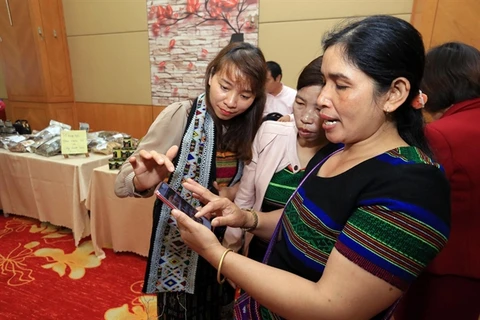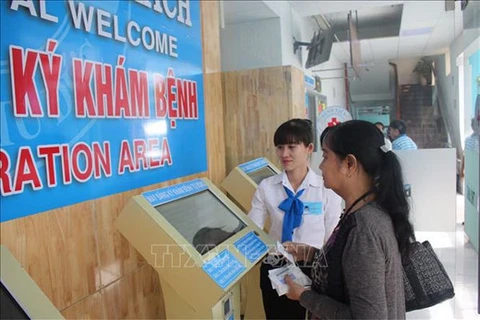Hanoi (VNA) – The labour, invalids and social sector made significant contributions to the socio-economic development of the country in 2019, said National Assembly Chairwoman Nguyen Thi Kim Ngan.
Addressing a teleconference in Hanoi on December 25, the top legislator praised the sector for its achievements in the year, especially in building institutions, improving the quality of vocational training and developing the labour market.
She underlined efforts by the sector in promoting poverty reduction, saying that relevant policies, which focus on creating sustainable livelihoods, have helped improve the living conditions of the people.
The NA Chairwoman stressed the need for the sector to pay attention to the institutional improvement work, especially in reforming salary and social insurance polices.
The Ministry of Labour, Invalids and Social Affairs (MoLISA) must review policies on social security, specially those on creating more jobs and increasing incomes for labourers, and better the quality of vocational training to meet the market demand amid the 4th industrial revolution, the NA Chairwoman said.
She asked the ministry to make more efforts in promoting gender equality, towards narrowing the gender gap, as well as pay heed to supervising the implementation of relevant policies and law.
A long-term and harmonious strategy should be developed to ensure social security, she said.
Speaking at the conference, Deputy Prime Minister Vu Duc Dam requested the MoLISA, the Vietnam Fatherland Front and relevant ministries and sectors, to work closely to do well tasks in 2020, which will focus on completing the draft Law on Vietnamese workers working overseas under contract, and issuing documents detailing and guiding the implementation of the revised Labour Code, and the Ordinance on Preferential Treatment of People with Meritorious Services.
The deputy PM also underlined the necessity to enhance science research, innovation and startups in education and training institutions, foster cooperation between education establishments and enterprises, expand vocational training in rural areas, and synchronously promote the generation of domestic jobs and the sending of labourers to work abroad./.
VNA
























